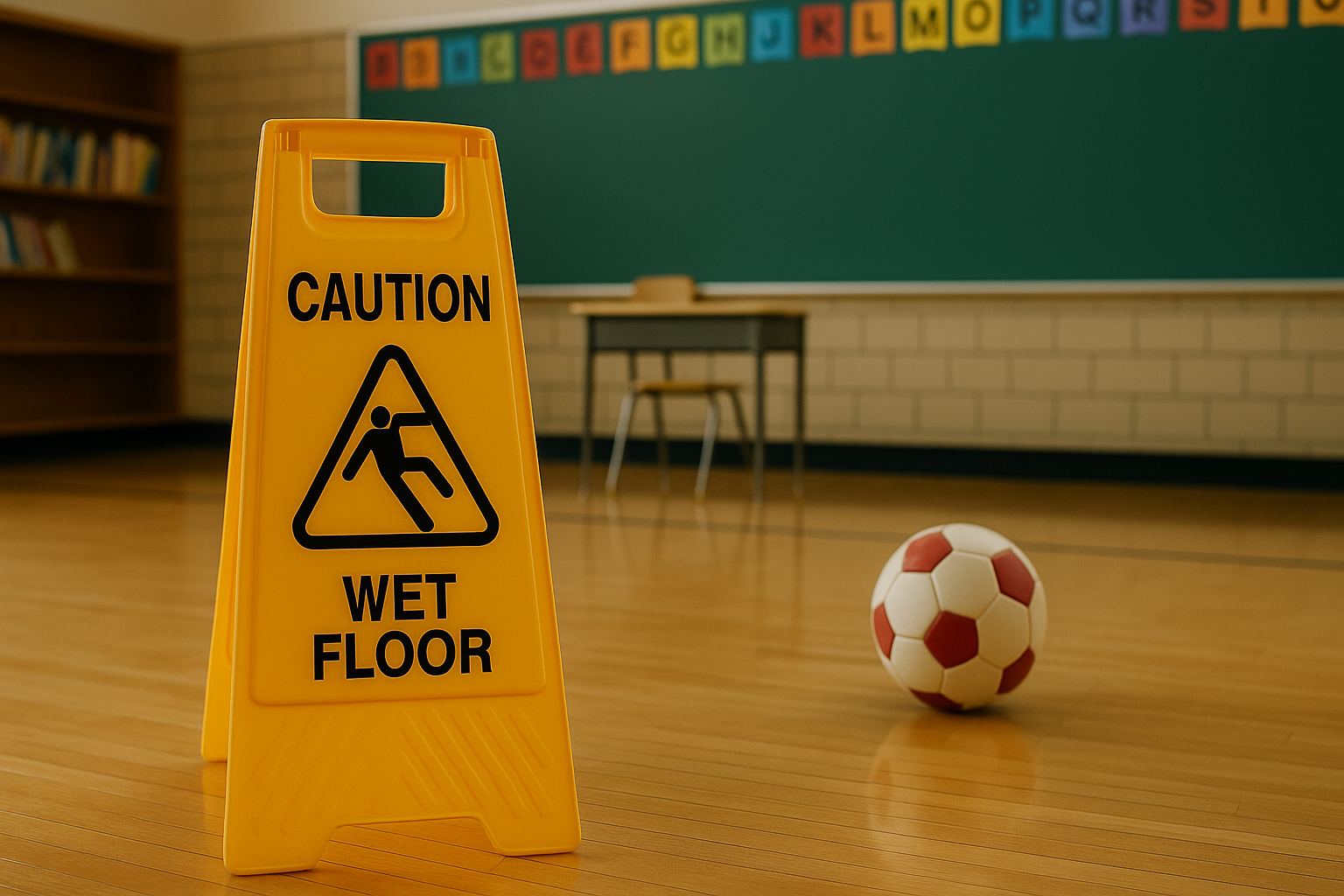When someone you love suffers a traumatic brain injury, life can change in an instant. Suddenly, families are faced with urgent medical decisions, overwhelming costs, and the uncertainty of what the future holds. The emotional and financial toll can feel unbearable, but knowing how to respond and what resources are available can make the road ahead more manageable. This guide will walk you through the key facts, challenges, and support options every family should understand when dealing with a TBI.
What is a traumatic brain injury?
A traumatic brain injury (TBI) is damage to brain tissue caused by an external mechanical force. This can come from a blow, jolt, or penetrative injury (for example, from a skull fracture or object entering the brain). Because the brain is very delicate and encased in a rigid skull, any sudden motion or impact can lead to bruising, bleeding, swelling, or tearing of neural connections.
TBIs exist on a spectrum, from mild (such as a concussion) to moderate or severe forms that lead to lasting impairment. Symptoms may show up right away or develop gradually over hours or days. That delayed onset is why any significant trauma to the head should prompt medical evaluation—even if the injured person seems “okay” at first.
Common symptoms of TBI
RecogIt is essential for family and caregivers to recognize signs of brain injury so treatment can begin promptly. Below are some typical symptoms:
- Headache
- Dizziness or balance problems
- Nausea or vomiting
- Confusion or disorientation
- Trouble concentrating or thinking clearly
- Sensitivity to noise or light
- Memory lapses
- Mood shifts, irritability, depression
- Loss of consciousness (even briefly)
In more severe cases, additional warning signs may include:
- Repeated vomiting
- Seizures or convulsions
- Slurred speech
- Weakness or numbness in limbs
- Difficulty waking up or staying awake
- Clear fluid draining from nose or ears
Because symptoms vary widely and might evolve, always err on the side of caution. Prompt imaging (such as CT scan) and neurologic evaluation are often needed.
Learn More: Top 10 Signs You May Have a Brain Injury

The long-term effects families should expect
A TBI is not just an acute event; its effects can ripple outward for years or for life. Survivors may deal with a host of challenges in three major domains:
- Physical and Motor Effects
- Weakness, spasticity, tremors
- Chronic pain, headaches
- Fatigue, sleep disturbances
- Cognitive and Communication Effects
- Memory loss (short-term or long-term)
- Reduced processing speed or multitasking ability
- Language or speech difficulties
- Poor executive functioning (planning, decision-making)
- Emotional and Behavioral Effects
- Irritability, anger, mood swings
- Depression, anxiety
- Changes in personality or social withdrawal
- Impulse control problems
Families may also find themselves navigating:
- Financial strain from medical bills
- Loss of income or employment
- Shifts in household roles and caregiving burdens
- Emotional stress, isolation, or burnout
It is often helpful to view these areas not in isolation but as parts of a whole, since difficulties in one domain (say, cognition) affect progress in others (behavior, lifestyle).
Here’s a quick comparison table of mild, moderate, and severe TBI outcomes:
| Severity | Typical Recovery Timeline | Possible Long-term Issues |
|---|---|---|
| Mild (concussion) | Weeks to a few months | Headaches, concentration problems, fatigue |
| Moderate | Months to years | Memory deficits, mood changes, mobility issues |
| Severe | Years or lifelong | Permanent disability, full-time care needs, profound cognitive impairment |
Even with aggressive rehabilitation, recovery is rarely a straight line—progress tends to plateau, backslide, and then resume.
Treatment and rehabilitation
The course of treatment depends heavily on how severe the injury is. Mild cases may require only rest, monitoring, and symptomatic care. More serious injuries often demand a combination of medical, surgical, and rehabilitative interventions.
Key components of treatment and rehab:
- Medical stabilization and monitoring to control bleeding, swelling, intracranial pressure
- Surgery, when necessary, to remove hematomas, repair skull damage, or relieve pressure
- Intensive care support: ventilators, nutrition, sedation
- Rehabilitation therapies:
- Physical therapy (to restore strength, balance, mobility)
- Occupational therapy (for daily living skills)
- Speech and language therapy (for communication, swallowing)
- Neuropsychological therapy (cognitive retraining, behavior therapy)
- Psychological / psychiatric support (counseling, medication)
Rehabilitation is a long process. Gains are often incremental, and setbacks are common. The involvement of family in therapy, consistency in exercises, and adjustment of the home environment are all vital to making progress.
Legal and financial considerations
The aftermath of a TBI frequently involves enormous expenses, lost wages, and ongoing care needs. Navigating this burden without legal knowledge can make the situation far more difficult. If the injury resulted from someone else’s negligence, civil action may provide a way to obtain compensation.
What families should know:
- Medical and rehabilitation costs can escalate rapidly, sometimes into the hundreds of thousands of dollars
- Lost income: The injured person and even family caregivers may lose wages
- Home modifications and assistive devices may be required for long-term care
- Legal claims:
- Personal injury lawsuits or insurance claims may recover costs for medical care, therapy, lost earning capacity, and pain and suffering
- A specialized attorney can help with evidence gathering, negotiation, and litigation
It is wise to retain counsel experienced in brain injury cases quickly—statutes of limitations and evidence preservation are critical. A lawyer can often help families secure interim funding during recovery and improve chances of full compensation.
Learn More: What Happens During a Free Legal Consultation?
How families can provide support
Family plays a pivotal role in a person’s recovery journey after a brain injury. Support that is informed, consistent, and adaptive often makes the difference between stagnation and progress.
Ways families can help:
- Provide emotional encouragement and positivity
- Assist with daily tasks (meal prep, hygiene, reminders)
- Help organize appointments and therapies
- Monitor for mood changes or confusion
- Set realistic goals and celebrate small successes
- Adjust expectations and be flexible with routines
Joining support groups or caregiver networks is also crucial. These offer:
- Shared experiences and practical tips
- Emotional outlets for frustration and grief
- Insight into local resources or therapies
Through education and patience, families become partners in rehabilitation—helping the injured person relearn skills, rebuild confidence, and adapt to new realities.
A hopeful path forward
Though the road after a traumatic brain injury may be challenging, families do not have to face it alone. With proper medical care, rehabilitation, and legal support, it is possible to create a path toward healing and stability.
At Knapp Moss, we understand how traumatic brain injuries can impact every aspect of life. Our team is committed to helping families secure the financial compensation they deserve, so they can focus on recovery and care. We fight for the rights of injury victims and guide families through the legal process with compassion and expertise.
Contact Knapp Moss today to discuss your case.
Frequently Asked Questions
TBIs are commonly caused by car accidents, falls, sports injuries, and acts of violence.
Yes. Some symptoms, especially cognitive or emotional changes, may develop gradually after the injury.
Recovery varies widely depending on severity. Some people improve in weeks, while others need years of rehabilitation.




